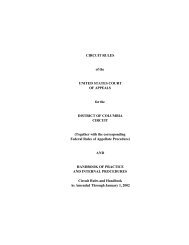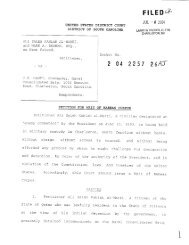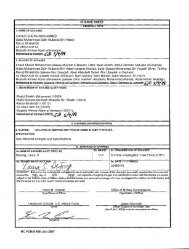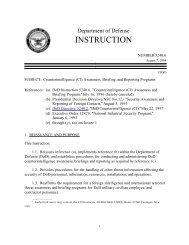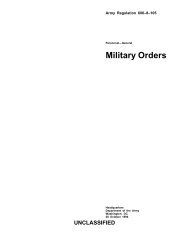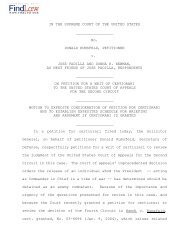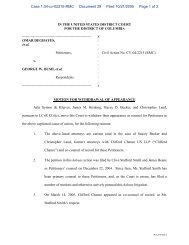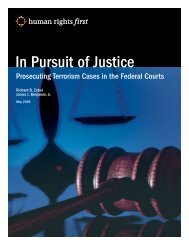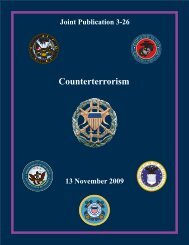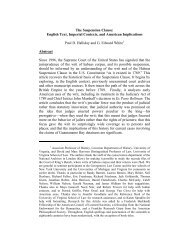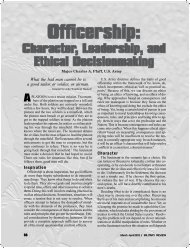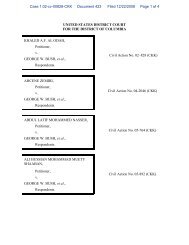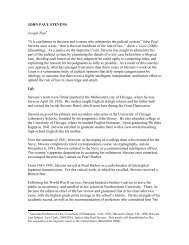Government Merits Brief - Hamdan v. Rumsfeld
Government Merits Brief - Hamdan v. Rumsfeld
Government Merits Brief - Hamdan v. Rumsfeld
Create successful ePaper yourself
Turn your PDF publications into a flip-book with our unique Google optimized e-Paper software.
17<br />
AUMF authorized the use of military commissions against<br />
enemy combatants, such as petitioner.<br />
b. Congress has not only authorized the President to exercise<br />
his traditional war powers in the specific context of the<br />
armed conflict with al Qaeda; it has also specifically recognized<br />
his ongoing authority to invoke military commissions<br />
when he deems them necessary. Article 21 of the UCMJ, 10<br />
U.S.C. 821, states that “[t]he provisions [of the UCMJ] conferring<br />
jurisdiction upon courts-martial do not deprive military<br />
commissions * * * of concurrent jurisdiction with respect<br />
to offenders or offenses that by the law of war may be<br />
tried by military commissions.” That language originated in,<br />
and is identical in all material respects to, Article 15 of the<br />
Articles of War, which were enacted during World War I. See<br />
Act of Aug. 29, 1916, ch. 418, § 3, 39 Stat. 650 (Articles of<br />
War). In the Articles of War, Congress extended the jurisdiction<br />
of courts-martial to offenses and offenders that had traditionally<br />
fallen within the jurisdiction of military commissions,<br />
while preserving the institution and jurisdiction of the commissions.<br />
See Madsen, 343 U.S. at 349-355. The main proponent<br />
of Article 15 testified that, as Congress was extending<br />
the jurisdiction of courts-martial, it was vital to make clear<br />
that the military commissions’ “common law of war jurisdiction<br />
was not ousted.” S. Rep. No. 229, 63d Cong., 2d Sess. 53,<br />
98-99 (1914) (testimony of Judge Advocate General Crowder).<br />
Moreover, this Court has construed Article 15 as having<br />
“authorized trial of offenses against the laws of war before<br />
such commissions.” Quirin, 317 U.S. at 29 (emphasis added).<br />
Although the language of this authorization in Article 15<br />
seems indirect, that simply recognizes that Congress was<br />
adding its imprimatur to a practice with a long history which<br />
did not depend on express statutory authorization. When<br />
Congress enacted Article 21 of the UCMJ, it merely<br />
recodified Article 15 of the Articles of War. See S. Rep. No.



